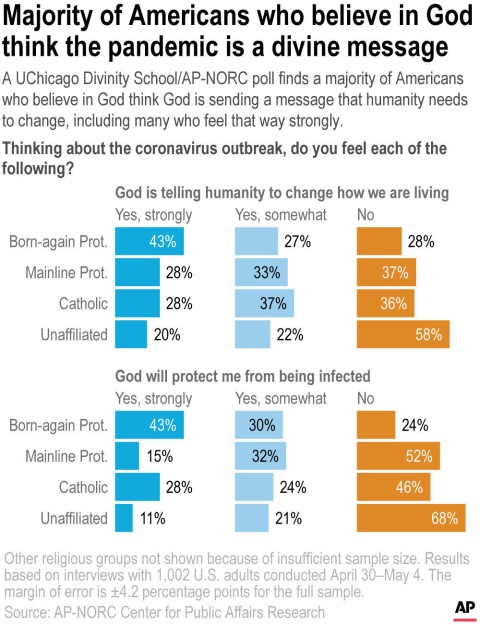New poll finds most Americans who believe in God see coronavirus as divine message

While the coronavirus rattles the United States, causing economic hardship for millions and killing more than 90,000 Americans, the findings of a poll by the University of Chicago Divinity School and the Associated Press-NORC Center for Public Affairs Research indicate that people may also be searching for deeper meaning in the devastating outbreak.
The poll found that 31 percent of Americans who believe in God feel strongly that the virus is a sign of God telling humanity to change, with the same number feeling that sentiment somewhat. Evangelical Protestants were more likely than others to say they believe this strongly, at 43 percent, compared with 28 percent of Catholics and mainline Protestants.
In addition, black Americans were more likely than those of other racial backgrounds—regardless of education, income, or gender—to say they feel the virus is a sign God wants humanity to change. Forty-seven percent say they feel this strongly, compared with 37 percent of Latino Americans and 27 percent of white Americans.




